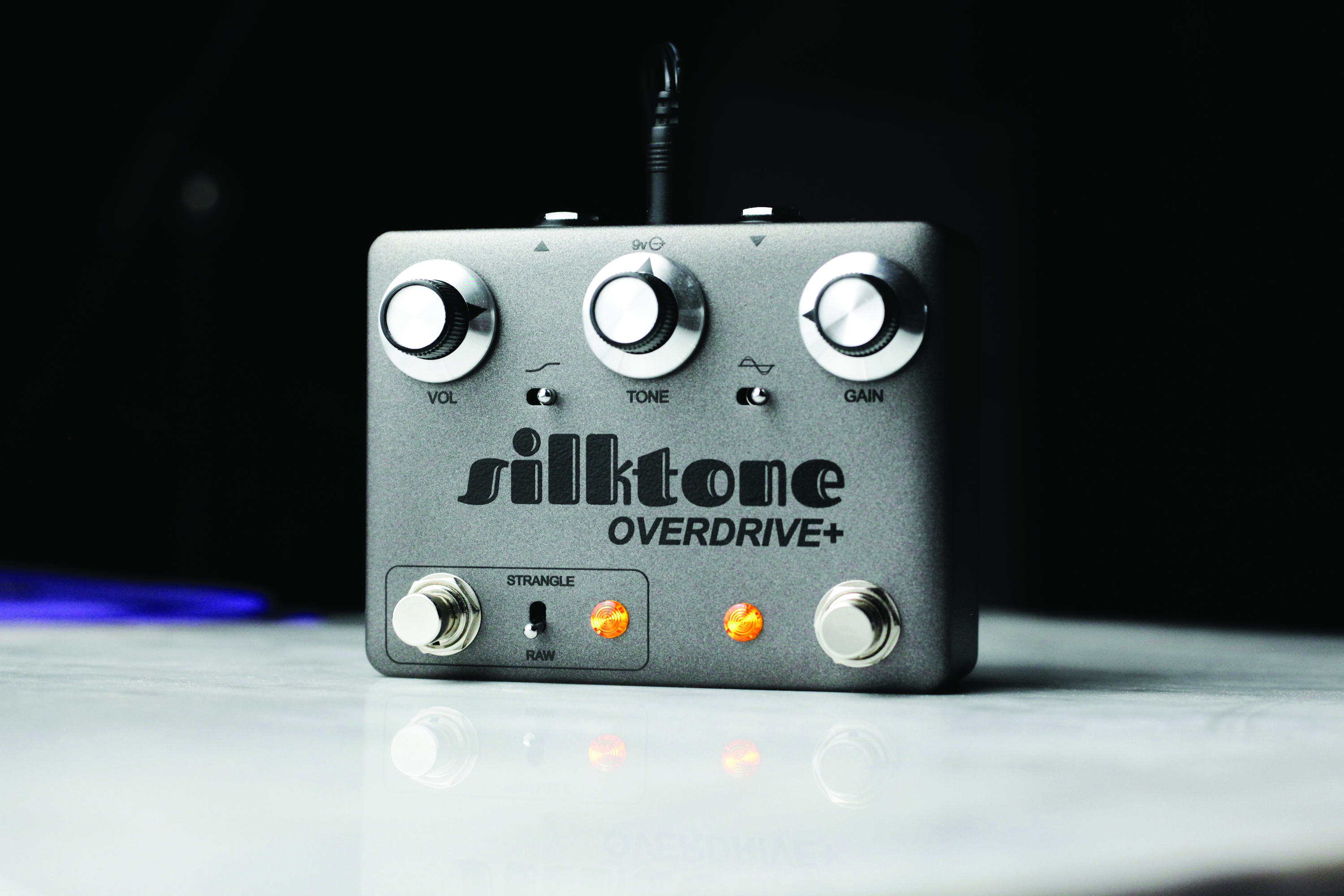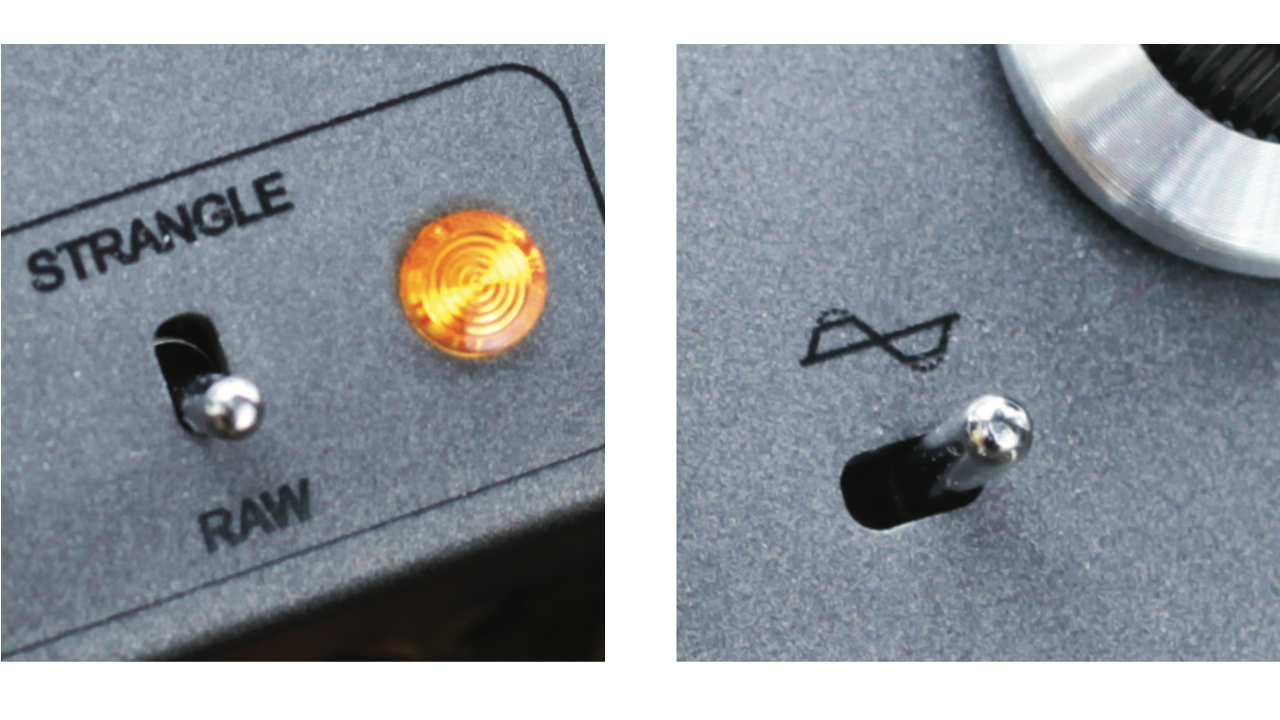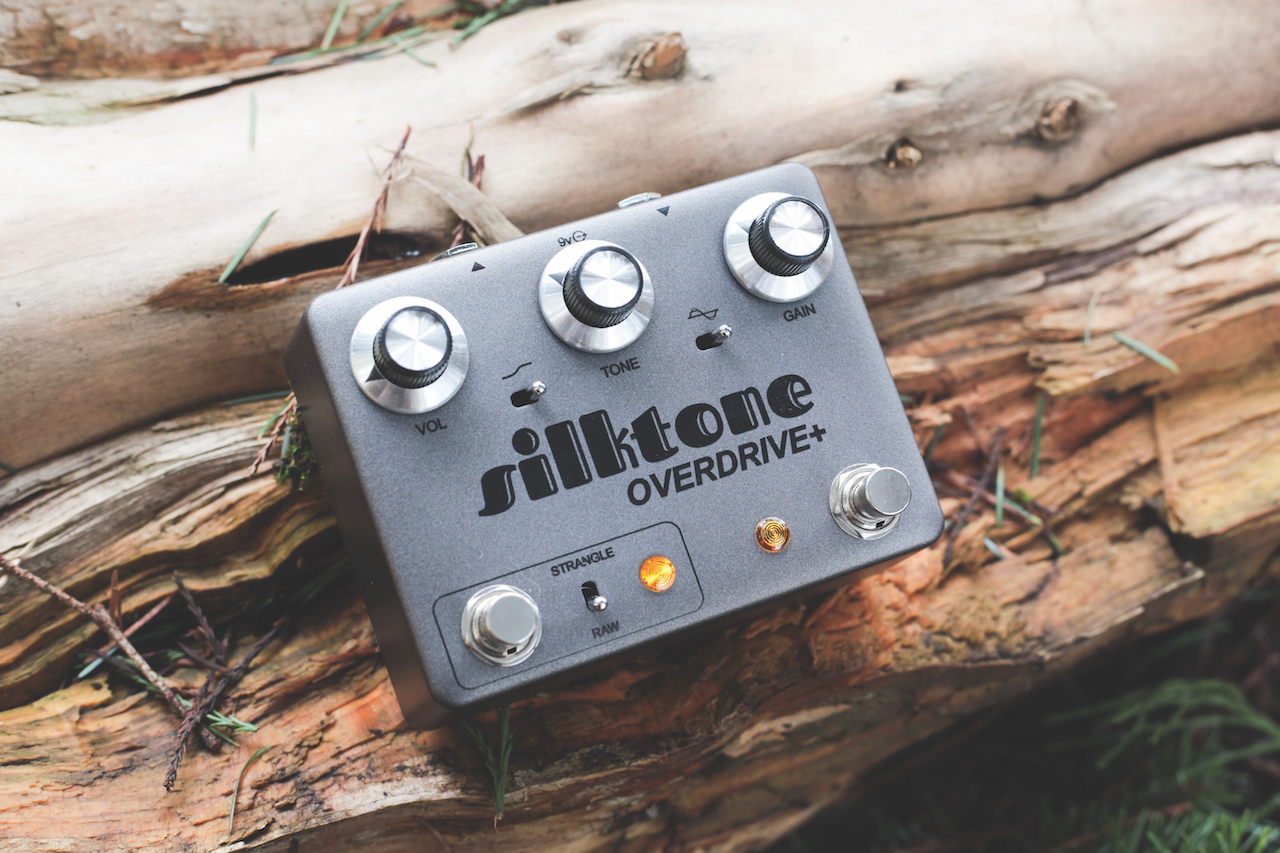GuitarPlayer Verdict
At its heart, the Overdrive+ is an extremely rich, full-bodied, and dynamic overdrive, with a broad range of gain available
Pros
- +
Versatile but spare and well-spaced knobs
- +
Extremely rich, full-bodied, and dynamic overdrive
- +
Broad range of gain
Cons
- -
Quick volume control taper
You can trust Guitar Player.
California-based maker Silktone is best known for its range of small-to-smaller tube amps, but the company does have the well-respected Fuzz pedal in its catalog. And thanks to the arrival of the equally eponymously named Overdrive+, that’s no longer the lone stompbox on offer.
A quick look at any of Silktone’s three amp models or the Fuzz itself quickly tells you that company founder and head designer Charles Henry isn’t satisfied merely remaking circuits that have gone before, and the Overdrive+ is no different.
Although the textured metal box – offered in Concrete (pictured above) or Dark finish (pictured below) options – chrome-skirted knobs, retro graphics and generic name hark back to some seminal overdrives of the ’70s and early ’80s, the circuit and features are different from any previous OD I know of, and the results put this pedal in a place all its own.
If an overdrive designed by a self-proclaimed hater of drive pedals sounds like something you wouldn’t even want to plug into, think again: it just indicates the level of “prove myself wrong”-ism that Henry embraced in this challenge.
After acknowledging that overdrives are already everywhere, Henry quips, “I’ve always maintained that the best drive pedal is the one that drives you to the store to get P90s and a real amp.” So the fact that he has even released the Overdrive+ to the public indicates he’s happy to put this one on the floor and let it do the (dirty) talking for him.

Knobs-wise, the Overdrive+ carries what we might call the Holy Trinity: gain, tone, and volume. That sparsity belies the versatility delivered by the trio of mini-toggles and the second foot switch (in addition to the standard on/off switch) that populate the box’s top face. In the gaps beneath the knobs are a clipping mode switch to select between Asymmetrical (left) and Symmetrical (right), and a Bass Cut that tightens up the low end.
Down in the bottom-left corner, in a little island all on their own, are the boost foot switch with its filter-mode switch and status light. Intended to add further gain to the signal while enhancing second-order harmonic distortion, this boost can be voiced with an inductor added for a cocked wah–like sound in Strangle mode, or engaged with the inductor bypassed for the chunkier Raw mode.
All the latest guitar news, interviews, lessons, reviews, deals and more, direct to your inbox!
The circuit inside uses a combination of op-amps, JFETs, and diodes. Given that Henry openly states he “fucking hates the sound of op-amp clipping,” these components are used for high-headroom amplification and buffering only, with all clipping undertaken by the JFETs and diodes. The input from the center-negative power connection is boosted internally to 30 volts, so nothing greater than a nine-volt DC supply should be used.

I tested the Overdrive+ with a Fender Jaguar and a Gibson ES-355 into a tweed Deluxe-style 1x12 combo and a 65amps London head and 2x12 cab. I immediately found that it not only sounds great but is also deceptively versatile, given its relatively simple feature set.
At its heart, Overdrive+ is an extremely rich, full-bodied, and dynamic overdrive, with a broad range of gain available. Personally, I liked it best with the gain knob at around one o’clock or beyond, which induced juicier harmonic overtones and a delectable touch sensitivity into the tone.
Thick, yet biting, smooth, yet articulate, these settings delivered chunky rhythm and dynamically expressive lead tones that I really enjoyed digging into, rendering the Overdrive+ one of the tastiest new OD pedals that I’ve played in a while.
For all this, though, lower settings were still useful for gentler thick boosting, for pushing a tube amp on the edge of breakup just over the edge, or for adding texture as an always-on pedal.
It was difficult to pick a favorite clipping mode. I found Symmetrical creamier and more luscious for home or bedroom playing, but Asymmetrical delivered a bark and edge that cut through better in a busier setting. (You should take note that Symmetrical delivers a slight volume drop, which is natural due to its slight compression.) The Bass Cut also proved a handy switch, ably suiting the pedal to different guitars, amps, and playing styles.
Yet, all of this is still without accounting for what Henry calls the “plus” side of the Overdrive+. That boost foot switch is superbly useful, delivering a well-judged gain-and-volume jump that should keep your sound-person from diving for the faders.
Set to Raw, a stomp here adds enough extra girth and grind to make it an instant rhythm/lead option all in one pedal. The instant cocked-wah sound provided by Strangle proved even more appealing than I’d imagined, tapping a flutey, singing lead mode that lent a little more color to the classic woman-tone setting.
My only real critique is that the taper of the volume (output) control comes on extremely quickly, and I never found myself able to use it much beyond nine o’clock without thumping the amp’s front end more than I’d normally like. Henry tells me that’s intentional, as he likes a lot of gain in his pedals and has little need for much range below unity gain. It might take some players by surprise, but it’s no big deal once you’re aware of it and have found your own sweet spot.
All in all, the Silktone Overdrive+ is a characterful, original and extremely versatile design in a sea of overdrives, and it earns an Editors’ Pick Award for its achievements.
Silktone Overdrive+ – Specifications
CONTACT Silktone
PRICE $269 street
CONTROLS Gain, tone, volume. Switches for Asymmetrical/Symmetrical clipping, Low Cut, and foot-switchable boost with Raw/Strangle voicing.
EXTRAS Input and output, true-bypass switching, LED indicator for each foot switch, center-negative 9VDC input
SIZE 4.5” x 3.25” x 1.5” (LxWxD)
BUILT USA
Dave Hunter is a writer and consulting editor for Guitar Player magazine. His prolific output as author includes Fender 75 Years, The Guitar Amp Handbook, The British Amp Invasion, Ultimate Star Guitars, Guitar Effects Pedals, The Guitar Pickup Handbook, The Fender Telecaster and several other titles. Hunter is a former editor of The Guitar Magazine (UK), and a contributor to Vintage Guitar, Premier Guitar, The Connoisseur and other publications. A contributing essayist to the United States Library of Congress National Recording Preservation Board’s Permanent Archive, he lives in Kittery, ME, with his wife and their two children and fronts the bands A Different Engine and The Stereo Field.



